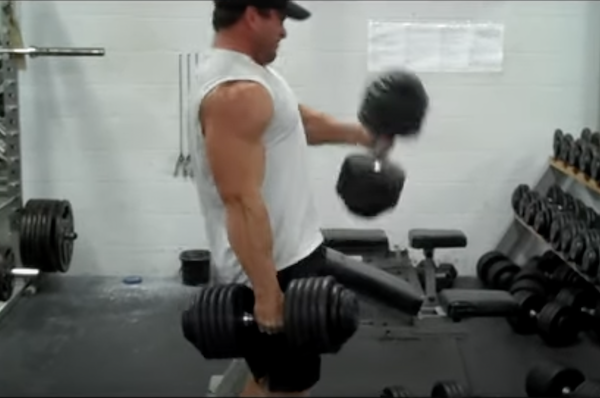Politics
New Zealand’s ‘Strongest Man’ Angling To Compete In Women’s Division To Protest Trans Agenda

Dale Shepherd, a male powerlifter and New Zealand’s “Strongest Man,” has submitted an application to compete in the women’s category of the Global Powerlifting New Zealand Day of the Deadlifts competition.
The move is a form of protest against gender self-identification in sports. Shepherd, 52, has been actively weightlifting for more than 40 years and has been participating in competitive weightlifting events since 2016.
“It is important to me that both transgender athletes and biological women both have the ability to compete in sports,” Shepherd told Reduxx.
“To maintain equity and preserve women’s sports, transgenders and biological women must have their own separate classes or eventually all women’s sports will be overtaken by biological men who now identify as a woman,” he said.
A male powerlifting coach self-identified as a woman and broke a women's benchpress record in protest of gender self-identification in sport.
Avi Silverberg performed the defiant act while the current record holder, a transgender male, watched.
READ: https://t.co/MXiyiGMgWQ pic.twitter.com/7J1b4iHlFG
— REDUXX (@ReduxxMag) March 28, 2023
“However, regardless of hormone treatment such as giving a biological male estrogen – the hormone primarily responsible for female characteristics – it does not totally negate all the years that male has had with higher testosterone levels resulting in greater bone density, tendon and muscle strength. As such biological women are at a significant disadvantage,” he says.
The Global Powerlifting Committee (GPC) of New Zealand reports that he has won numerous competitions and currently holds almost 24 national records. He finished in the top two spots at the 2016 Nationals and took fourth place at the 2022 Nationals. Additionally, Shepherd won the New Zealand’s Strongest Man title in 2010.
The Global Powerlifting Committee of New Zealand (GPCNZ) recognizes self-declared gender identity in their 2023 Rulebook. However, when Dale declared himself as a woman to participate in the women’s category, he was told that he needed to have been on estrogen for at least one year to compete, and he contests that this requirement constitutes discrimination, according to Reduxx.
According to the GPCNZ rulebook, biological females who transition to male have no medical requirements, while males who are seeking to compete in the female category are subject to certain restrictions laid out by the IOC Consensus Meeting on Sex Reassignment and Hyperandrogenism in November 2015.
Save Women’s Sports, a group dedicated to keeping biological men out of women’s competing tweeted the following in support: “Dale weighs 118kg and has held the title of New Zealand’s strongest man for six years. Thanks to the New Zealand Labour govt, #SexSelfID comes into force in NZ on 15 June when Dale will be self-identifying as a woman in time for the Global Powerlifting Committee (GPC)Day of the Deadlifts only comp.”
“Dale holds numerous NZ male records & has also broken world records. Dale knows he’ll easily break the female record & is doing this to highlight the absurdity of allowing self ID in sport & to help force a rule change. We hope he is successful.”
Day of the Deadlifts only comp. Dale holds numerous NZ male records & has also broken world records. Dale knows he'll easily break the female record & is doing this to highlight the absurdity of allowing self ID in sport & to help force a rule change.
We hope he is successful.💪— Save Women’s Sports Australasia (@SWS_australasia) April 14, 2023
At the moment, Shepherd is waiting for a reply from the GPC and plans to continue with his intention to compete as a female powerlifter in June, if he is given permission to do so. If he proceeds with his protest, he will be the second male powerlifter to use his strength to advocate for equity in sports.

